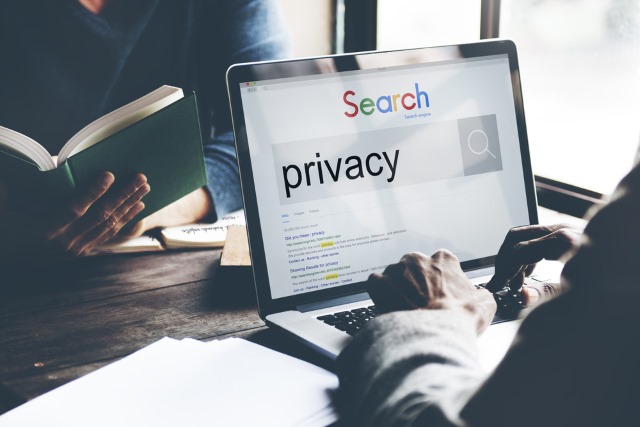
UK government scraps controversial plans for adult site age checks
The UK government's plans for age verification checks on porn site users, which were delayed in June of this year, have now been scrapped, the Department for Digital, Culture, Media and Sport announced today.
The checks would have required users to register a credit card or buy a 'porn pass' in order to access adult material online.

Which countries are best at protecting your privacy?
We all know that standards of privacy and surveillance vary around the world. But which places are best at protecting your privacy?
Research from security testing site Comparitech finds that no single country is consistent in protecting the privacy of its citizens, most are actively monitoring citizens, and only five could be deemed to have 'adequate safeguards'.

Online anonymity is a lie: Research challenges privacy protection frameworks
Online privacy and anonymity seem farther away from our reach than ever. It is almost as if every new advancement and progress in technology further removes another brick from an already flimsy wall of privacy on the web.
Although legislations such as GDPR were designed to protect user privacy and anonymity, these guarantees hold little weight against powerful technologies like machine learning which -- researchers have found -- can piece together anonymized information to form your complete identity.

New solution speeds up identity verification for enterprises
Due to the potentially crippling effect of security breaches and data loss on both the bottom line and a brand’s reputation it's vital for organizations to protect their users.
Increasingly, identity management has become central to building seamless, secure digital engagement platforms, differentiating products, and winning long-term loyalty. However there can be a trade off between security and performance.

Twitter reveals 2FA security data has 'inadvertently been used for advertising purposes'
Twitter has announced that email addresses and phone numbers provided by users for use with two-factor authentication (2FA) have been "inadvertently" used to deliver tailored ads.
The company says it does not know how many people are affected by the incident, but apologizes for letting private data be used in this way. The timing of the announcement is a little strange. Twitter says that the matter was under control as of September 17, and it is not quite clear why it took three weeks to go public about it -- even though it says "in an effort to be transparent, we wanted to make everyone aware".

Too many users given access to sensitive information
Poor privileged access management practices that lead to people having too much access continue to be a critical challenge for many organizations despite significant risks of data breaches and security incidents.
A new report from technology consulting company Sila and the Ponemon Institute surveyed more than 650 North American respondents and finds 70 percent think it likely that privileged users within their organizations are accessing sensitive or confidential data for no discernible business need.

Cybersecurity companies focus on the role of 'stalkerware' in domestic abuse
Yesterday marked the start of not just Cybersecurity Awareness Month but also Domestic Violence Awareness Month.
Domestic abusers often make use of stalkerware (commercial spyware used as a tool for domestic espionage) to leverage their partner's digital footprint for physical control.

Google introduces more privacy controls for Maps, YouTube and Assistant
Google has today announced a raft of a new privacy features across a swathe of its products and services.
Google Maps is going to benefit from a new Incognito Mode just like Chrome and YouTube. YouTube itself is gaining a new option for automated history deletion, and Google Assistant -- recently dragged through the privacy mud along with other digital assistants -- is also getting new deletion options.

Google launches enhanced password management capabilities
According to a Harris Poll carried out for Google, 75 percent of Americans get frustrated trying to manage all their passwords.
This results in unsafe practices as 24 percent have used the following common passwords, or some variation: like 'abc123', 'Password', or '123456'. 59 percent of US adults have incorporated a name (their own, a family member's, a partner's, or a pet’s) into their password to an online account, 22 percent have used their own name and a third have used their pet's name or a variation as their password.

Workplace errors increase risk of data breaches
Around two thirds of businesses have experienced a data breach in the last year and seemingly innocent workplace mistakes could be one of the main causes.
A new report produced by the Ponemon Institute for document security specialist Shred-it reveals that 71 percent of managers have seen or picked up confidential documents left on a printer.

One year on from the Facebook data breach -- what has changed? [Q&A]
One year ago this week Facebook suffered a massive data breach that prompted the company to reset access for around 90 million accounts.
A year on from this event what has been done to make users' data more secure and are people becoming more aware of the risks to their privacy from using social networks and other sites? We spoke to Fouad Khalil VP of compliance at SecurityScorecard to discuss these things and more.

New tool gives businesses greater control and visibility of customer data
Consumers are becoming more aware of how valuable their personal data is to businesses, in return for this information they expect customized, relevant online experiences.
From the business side this means ensuring that data is held in line with the law, internal policies and customer preferences. Data infrastructure company Segment is launching a new tool to help businesses with this privacy management.

Two thirds of consumers don't think government encryption backdoors will protect them from terrorists
A new survey by machine identity protection company Venafi shows consumers don't trust major cyber security policies pushed by their governments.
Government officials in nearly every country believe the security risks inherent in government-mandated encryption backdoors are less important than giving law enforcement broad access to encrypted personal data. However, US and European consumers overwhelmingly disagree. When asked if laws allowing governments to access encrypted personal and private data would make them safer from terrorists 64 percent don’t agree.

BullGuard launches new internet security range
BullGuard is launching its range of 2020 security products which include a new Secure Browser and machine learning capabilities.
The 2020 product suite also now enables direct integration with BullGuard VPN to ensure users' privacy when connecting to public Wi-Fi.

Cloudflare's Warp VPN now available to all
Cloudflare introduced a privacy-focused DNS service last year, and rolled out a mobile app for it as well. The 1.1.1.1 app for Android and iOS aims to speed up and protect your mobile browsing by routing your DNS queries through its own resolver.
Earlier in the year the company announced a VPN service to go along with this called Warp, and invited users to sign up to a waiting list. It was a very long list though -- I was number 1,932,244! The good news today though is the wait is now over and anyone can start using Warp.
